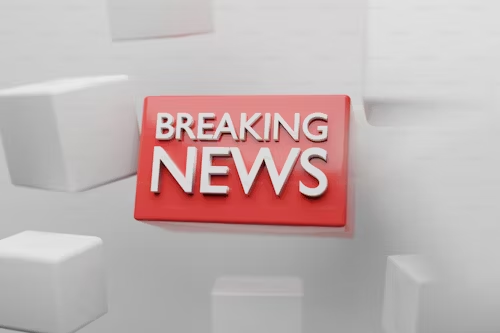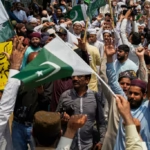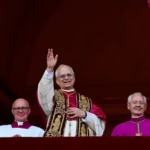In a dramatic escalation of disciplinary actions, Columbia University has suspended more than 65 students and barred several others from campus after a controversial pro-Palestinian demonstration that took place inside the prestigious institution’s Butler Library. The protest, which occurred earlier this week, has ignited significant debate, drawing attention to the intersection of free speech, student activism, and institutional control at one of the nation’s most respected Ivy League universities.
On Friday, a school spokesperson confirmed that the university had taken immediate action against the students involved in the protest, which disrupted the normal flow of academic activities at the university. According to the spokesperson, over 65 students have been placed on interim suspension, meaning they are barred from attending classes, entering campus facilities, or participating in other university-related activities. This decision was made in light of the protest’s severity, which took place just before the university’s final exam period, causing significant disruption to students studying in the library.
Interim suspension, as defined by the university, prevents the suspended individuals from accessing Columbia’s academic environment during the ongoing investigation into the events. The suspension’s duration remains unclear as the university continues to review the matter. Columbia has declined to provide a specific timeframe for how long the disciplinary actions will last, nor have they clarified the exact reasons behind the suspensions of specific individuals. The investigation is expected to delve deeper into the nature of the protest and the actions of those involved.
Furthermore, the university has confirmed that a total of 33 individuals, including students from affiliated institutions such as Barnard College, are also barred from setting foot on the university’s campus. The restrictions apply to students and alums alike, signaling the serious nature of the administration’s response to what they have labeled as an “outrageous” disruption. The university’s decision to extend this action to alums who participated in the protest reflects a broader effort to maintain control over campus activities, even when individuals who are no longer enrolled are involved.
The protest itself began Wednesday evening at Columbia’s Butler Library, a central hub on campus known for its historical significance and its importance during exam periods. Protesters, many of whom were masked, managed to bypass security officers, making their way into the building. Once inside, the demonstrators hung Palestinian flags and other banners on bookshelves, symbolizing their stance in the ongoing Israeli-Palestinian conflict. Some of the protesters also wrote inflammatory messages on furniture and picture frames, including the provocative phrase “Columbia will burn,” which further fueled the controversy surrounding the demonstration.
The demonstration was not without consequence. The New York City Police Department was called to the scene after Columbia officials requested their assistance. Officers, dressed in helmets and full protective gear, moved swiftly to break up the protest, arresting 80 individuals involved in the incident. The majority of those arrested face trespassing charges, though a smaller number could also be charged with disorderly conduct, according to police reports. The quick mobilization of law enforcement underscored the seriousness of the disruption, as students preparing for finals were forced to contend with the disturbance in what should have been a quiet, productive space.
While the protest at Columbia University centered on a political issue—the Israeli-Palestinian conflict—it has also sparked discussions on the university’s role in regulating protests and ensuring a safe environment for academic study. University administrators have denounced the protest as an unwarranted disruption to students, particularly during the intense period of final exams. Columbia President Minouche Shafik and other senior officials have called the incident “unacceptable,” and some have emphasized the negative impact such actions have on students who are focused on preparing for their academic evaluations.
Additionally, the incident has garnered national attention due to the involvement of high-profile political figures. U.S. Secretary of State Marco Rubio recently stated that his office will be reviewing the visa status of individuals who participated in the protest to determine whether any legal action should be taken, including possible deportation. The U.S. government’s involvement highlights the broader political stakes tied to the Israeli-Palestinian conflict and the significance of protests taking place at prestigious American institutions.
Columbia University’s response to the demonstration has also drawn attention due to the actions of the Trump administration, which has already pulled federal funding from universities, including Columbia, that were seen as mishandling protests in relation to the war in Gaza. In the past, the U.S. government has cracked down on universities for allowing protests related to international issues, arguing that they disrupt both the academic environment and U.S. foreign policy interests. The Trump administration’s crackdown on student protests and their involvement in foreign policy debates has raised questions about the limits of free speech in academic settings, especially when such speech intersects with larger geopolitical issues.
The Columbia University incident has brought the university’s policies on protest and free speech to the forefront of national debate. While many defend the right to protest as an essential aspect of democratic engagement, others argue that disruptive actions, especially those that interfere with students’ academic pursuits, should be met with strict disciplinary measures. The balance between allowing students to voice their opinions and maintaining a productive, academic environment is a delicate one that universities across the country continue to navigate.
The suspension of more than 65 students and the subsequent fallout from the demonstration raises important questions about the nature of activism on college campuses. As students become increasingly involved in global issues and social justice movements, universities are faced with the challenge of balancing their commitment to free speech with the need to protect the integrity of the educational experience. The actions taken by Columbia University will undoubtedly set a precedent for how institutions of higher learning approach similar demonstrations in the future.
In the aftermath of the Columbia protest, students, faculty, and staff members are left to contend with the fallout and its broader implications for the university. Some have expressed frustration over the harsh penalties imposed on the demonstrators, while others have expressed concern that the university’s response could stifle future protests. What is clear is that this event will spark ongoing conversations about the role of higher education institutions in balancing freedom of expression with maintaining order and discipline within their communities.
As the investigation continues and disciplinary measures remain in place, Columbia University faces an important moment in defining its stance on student activism and the limits of protest. The decisions made in the coming weeks will likely have long-lasting effects on the university’s policies and its relationship with its students, staff, and the larger academic community.
This incident serves as a reminder of the challenges that universities face in maintaining an environment conducive to both free speech and academic excellence. It also highlights the increasingly complex role that higher education institutions play in addressing global issues, while ensuring that the academic experience remains uninterrupted. As students and administrators continue to process the aftermath of this protest, the question of how to best balance these competing interests remains at the forefront of campus discussions.


